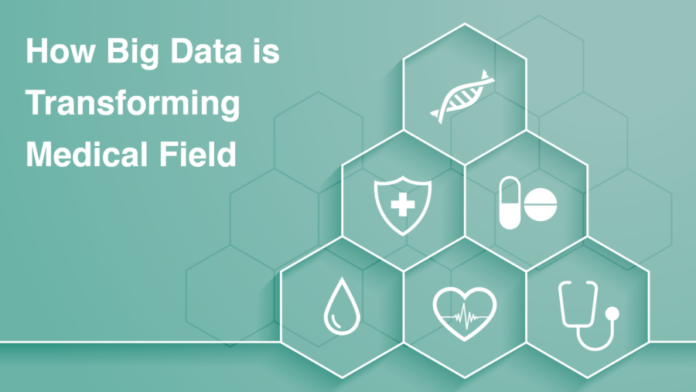It’s no secret that the medical industry is an enormous industry. Due to the rise in patients’ needs, and advanced technologies, it is inevitable to adopt big data for the medical field.
But, to execute this on the large scale, there is a need a data analyst team is required. As the core roles and responsibilities of a data analyst are to collect data and analyze the pattern in large data sets.
DO YOU KNOW?
The global big data analytics in the healthcare market is approximately 39.7 billion dollars in 2022. Medical data is being digitized in the healthcare industry to push it at a CAGR of more than 19%. A total market value of 194.7 billion dollars is expected to reach by 2032.
Presently, big data analytics in the medical industry accounts for ~14.2% of the analytics market. But, the question comes to how big data analytics is transforming the medical field?
Here are the 10 ways big data is transforming the medical field.
- Enhancing Operational Efficiency
The importance of big data in the medical industry is that healthcare organizations use it as part of their Business Intelligence strategy. This technology can help you analyze historical patient admission rates and examine the efficiency of staff.
- Health Tracking
Big data is undoubtedly revolutionizing the way to track user statistics. This technology is not only detecting the patient’s sleep, exercise, and health rate, but there are new medical innovations introduced to monitor blood pressure, glucose monitors, and pulse oximeters. Continuous health tracking will enable medical organizations to focus on identifying potential health issues rather than investing time in tracking minor health issues.
- Reducing Costs
Big data is a great way to save medical costs. Predictive analysis help to predict the admission rate and provide assistance with staff allocation. The majority of medical organizations are already using predictive analytics. Even the insurance industry save cost by sponsoring health tracker, and wearables.
Even, predictive analytics help to reduce the cost of hospital readmissions. Additionally, it helps to reduce bed shortages, and staffing needs and enhances the healthcare sector altogether.
- Curing High-Risk Patients
By digitizing the hospital records, it is easier to understand the pattern of many patients. It is a great way to check on high-risk patients and provide them with exceptional care.
- Advancement in the Medical Sector
The medical sector has several improvements to be made by leveraging technology. Investing in big data analytics helps your healthcare organization to access patient records in no time. U Big data plays a vital role in other industries as well. Medical professionals are already using this technology for the optimal management of hospitals. Even to increase patient engagement and reduce the death rates by a significant percentage.
- Preventing Human Errors
You may know that healthcare professionals can prescribe the wrong medication. Luckily, leveraging big data reduces such errors as this technology analyses user data and the prescribed medication. No doubt, big data analytics is a powerful tool for healthcare professionals.
- Healthcare Intelligence
It is advisable to apply big data to harness the benefits of healthcare intelligence. By doing this, your medical organization creates smart business solutions to get competitive advantages.
- Seamless Hospital Administration
Leveraging big data reduces the cost of careful calculation, analyzes information from different sources, and delivers the best possible medical care. Healthcare professionals deliver insights about the way of planning uncertain events like natural calamities or epidemics.
- Enhanced Security
By investing in big data, you can prevent fraudulent activities within the healthcare industry. It helps in improving cybersecurity and protecting data. The majority of healthcare organizations have already started using big data to enhance security.
- Electronic Health Records (EHRs)
EHRs are real-time records making information available securely to authorized users. They store the medical histories of patients digitally rather than the paper-based traditional system. These records help medical professionals to access data with ease and provide them quality care.
Wrapping It Up
Big data analytics is a great way to provide quality patient care in the medical industry. Simply put, big data increases the potential of medical sectors to predict epidemics, cure diseases, improve quality of life, and early preventive care. This newest technology is definitely the future. So, being a medical professional, it is time for you to leverage big data for your business.



































































